New Scientist covers the latest developments in science and technology that will impact your world. New Scientist employs and commissions the best writers in their fields from all over the world. Our editorial team provide cutting-edge news, award-winning features and reports, written in concise and clear language that puts discoveries and advances in the context of everyday life today and in the future.
Elsewhere on New Scientist
How not to cry wolf • The search for alien life needs strong guidelines to be sure of what is really out there
New Scientist International Edition
Starship takes to the skies again
COP28 must restrict warming to 1.5°C to save ice sheets…
…yet Earth passed 2°C of warming on hottest recorded day
Genetics linked to cannabis addiction • People with cannabis use disorder seem to share DNA markers
Smart pill monitors breathing and heart rate from your gut
Huntington’s gene may boost IQ • The mutation behind the brain condition Huntington’s disease has been linked to greater intelligence in early life, possibly explaining why it has been selected for, finds Clare Wilson
Plants have a weekend boost to productivity
US-China talks may cut nuclear risk • Bilateral discussion on use of artificial intelligence could lead to restriction on military use
Blood test could predict depression in adolescents
Earth-monitoring satellite hit by interference since Ukraine invasion
Bat uses its huge penis like an arm during sex
Long life linked to personality traits • A group of centenarians reported being sociable, positive and strong in the face of adversity
Flexible needle goes soft after injections to improve safety
Strange nebula changes colour like a galactic mood lamp
Bonobos, like humans, are often friendly with outsiders
Analysis Gene editing • Sickle cell CRISPR ‘cure’ is the start of a revolution in medicine The approval of the first CRISPR treatment, for sickle cell disease and beta thalassemia, is just the start for a technology still in its infancy, says Michael Le Page
Einstein put to the test on the ISS • Ultracold atoms on the International Space Station will test general relativity and beyond
Anemones are the first animals known to track the sun
DeepMind AI is a games master • System that beats humans at chess and poker could be a step towards general intelligence
Comets deliver life’s ingredients to close-packed planets
Ants eat ‘medicinal’ insects to get better
A way to stop brain swelling after injury
3D-printed robotic hand has tendons and muscles
Really brief
When the rain starts to pour • The death of actor Matthew Perry has been unexpectedly upsetting for many. Why do celebrity deaths affect us so much, asks Sara Novak
This changes everything • Don’t be misinformed Trust and safety teams at tech firms are all too easy to overlook, but the rise of propaganda and online harassment makes them vitally important, says Annalee Newitz
Branching out
Your letters
A question of consciousness • As consciousness continues to defy a definitive theory, thinkers will continue to make strong claims. How do two new books fare, asks Susan Blackmore
Don’t believe it… • Enjoy some unusual insights into the early days of psychology, says Simon Ings
New Scientist recommends
The TV column • Getting real For All Mankind’s fourth season of alternate-history drama is as riveting as ever, but with added gravitas as it tackles questions also facing us in our world – such as how to convince people to act for future generations, says Bethan Ackerley
Dream machines • Wearable technology that stimulates the brain to help you...

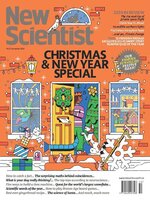 Dec 14 2024
Dec 14 2024
 Dec 07 2024
Dec 07 2024
 Nov 30 2024
Nov 30 2024
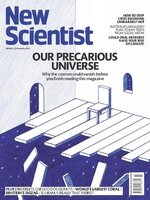 Nov 23 2024
Nov 23 2024
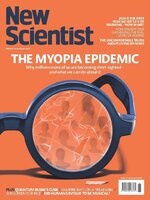 Nov 16 2024
Nov 16 2024
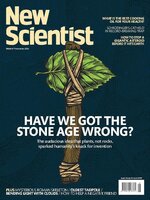 Nov 09 2024
Nov 09 2024
 Nov 02 2024
Nov 02 2024
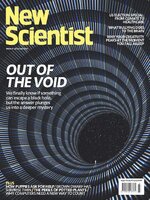 Oct 26 2024
Oct 26 2024
 Oct 19 2024
Oct 19 2024
 Oct 12 2024
Oct 12 2024
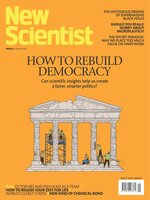 Oct 05 2024
Oct 05 2024
 Sep 28 2024
Sep 28 2024
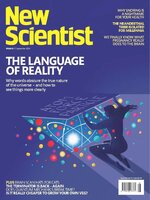 Sep 21 2024
Sep 21 2024
 Sep 14 2024
Sep 14 2024
 Sep 07 2024
Sep 07 2024
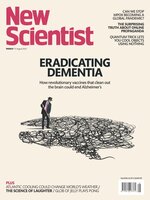 Aug 31 2024
Aug 31 2024
 Aug 24 2024
Aug 24 2024
 Aug 17 2024
Aug 17 2024
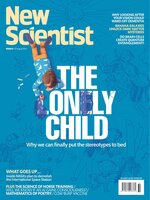 Aug 10 2024
Aug 10 2024
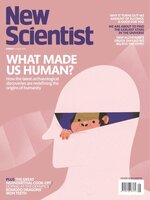 Aug 03 2024
Aug 03 2024
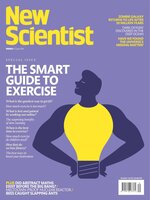 Jul 27 2024
Jul 27 2024
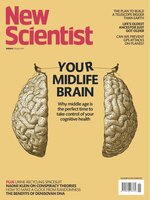 Jul 20 2024
Jul 20 2024
 Jul 13 2024
Jul 13 2024
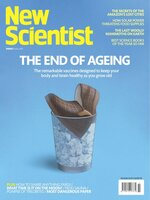 Jul 06 2024
Jul 06 2024
